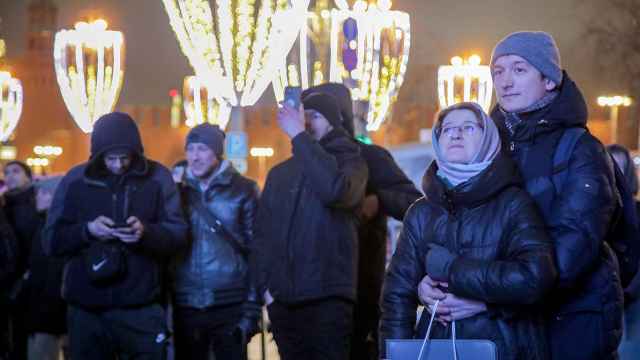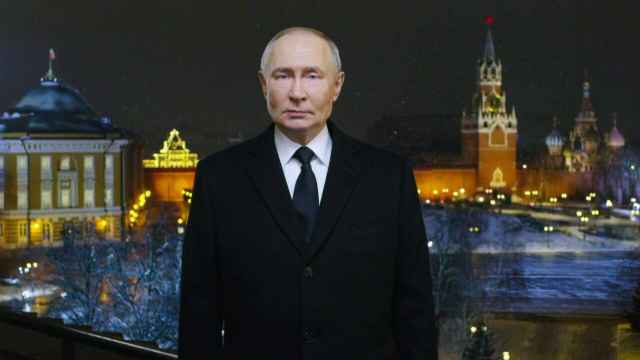Budget spending rules must be eased to allow urgent investment in Russia's crumbling road system, the Economic Development Ministry said.
"The condition of our roads will soon undermine all our efforts to improve the investment climate," Economic Development Minister Andrei Belousov said in an interview with Vedomosti on Thursday.
Current budget rules forbid releasing oil revenues for infrastructure projects until the national reserve fund, a kind of rainy day piggy bank, reaches 7 percent of GDP.
After that point, half of oil revenues will be diverted to infrastructure projects while the remainder is put into the National Reserve Fund.
Belousov said he wants the extra funds to be released once the reserve fund has reached just 5 percent of GDP.
"From the point of view of risks to the budget system, 7 percent and 5 percent are one and the same. But for those 2 percent of GDP we could shorten construction and reduce bottle necks," he said.
Prime Minister Dmitry Medvedev's spokeswoman Natalya Timakova said both Medvedev and President Vladimir Putin backed the current rules. Putin's spokesman Dmitry Peskov said the issue was "under development."
The reserve fund held 1.9 trillion rubles ($60 billion), or about 3 percent of GDP, as of Dec. 1. The Finance Ministry estimates it will reach 7 percent of GDP by 2017 and 5 percent as early as 2014, assuming oil prices remain within budget estimates.
Defenders of the 7 percent limit say the reserve fund is needed to insure the country against possible economic shocks.
Russia ranks 100th out of 142 countries in terms of quality of infrastructure and 130th for road quality on the World Economic Forum's ranking of economic competitiveness.
The federal government spent 392 billion rubles on road building and upkeep in 2012, and it plans to spend 450 billion in 2013.
A Message from The Moscow Times:
Dear readers,
We are facing unprecedented challenges. Russia's Prosecutor General's Office has designated The Moscow Times as an "undesirable" organization, criminalizing our work and putting our staff at risk of prosecution. This follows our earlier unjust labeling as a "foreign agent."
These actions are direct attempts to silence independent journalism in Russia. The authorities claim our work "discredits the decisions of the Russian leadership." We see things differently: we strive to provide accurate, unbiased reporting on Russia.
We, the journalists of The Moscow Times, refuse to be silenced. But to continue our work, we need your help.
Your support, no matter how small, makes a world of difference. If you can, please support us monthly starting from just $2. It's quick to set up, and every contribution makes a significant impact.
By supporting The Moscow Times, you're defending open, independent journalism in the face of repression. Thank you for standing with us.
Remind me later.





